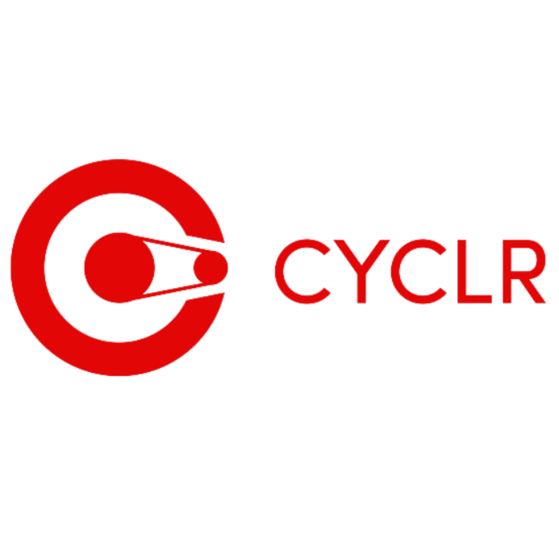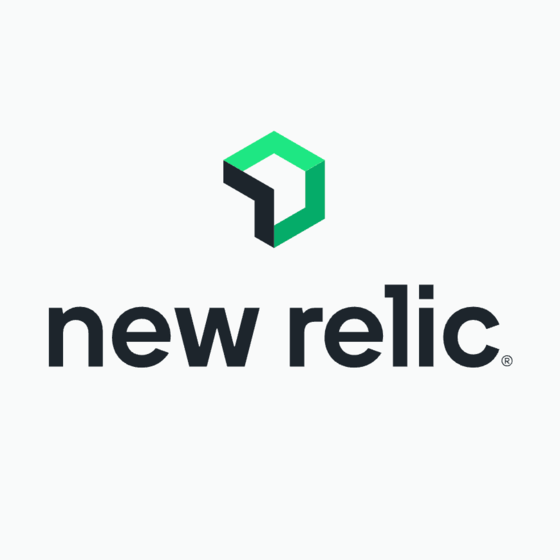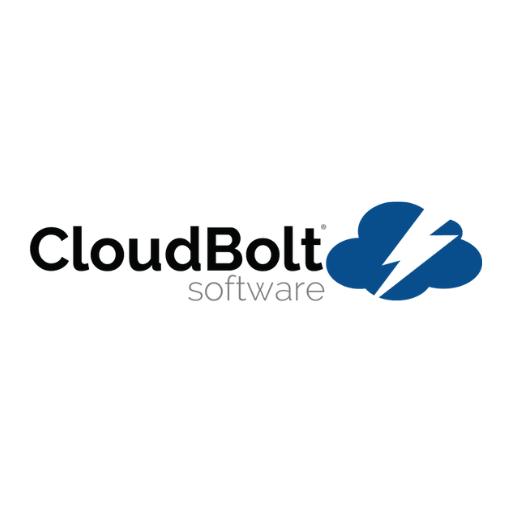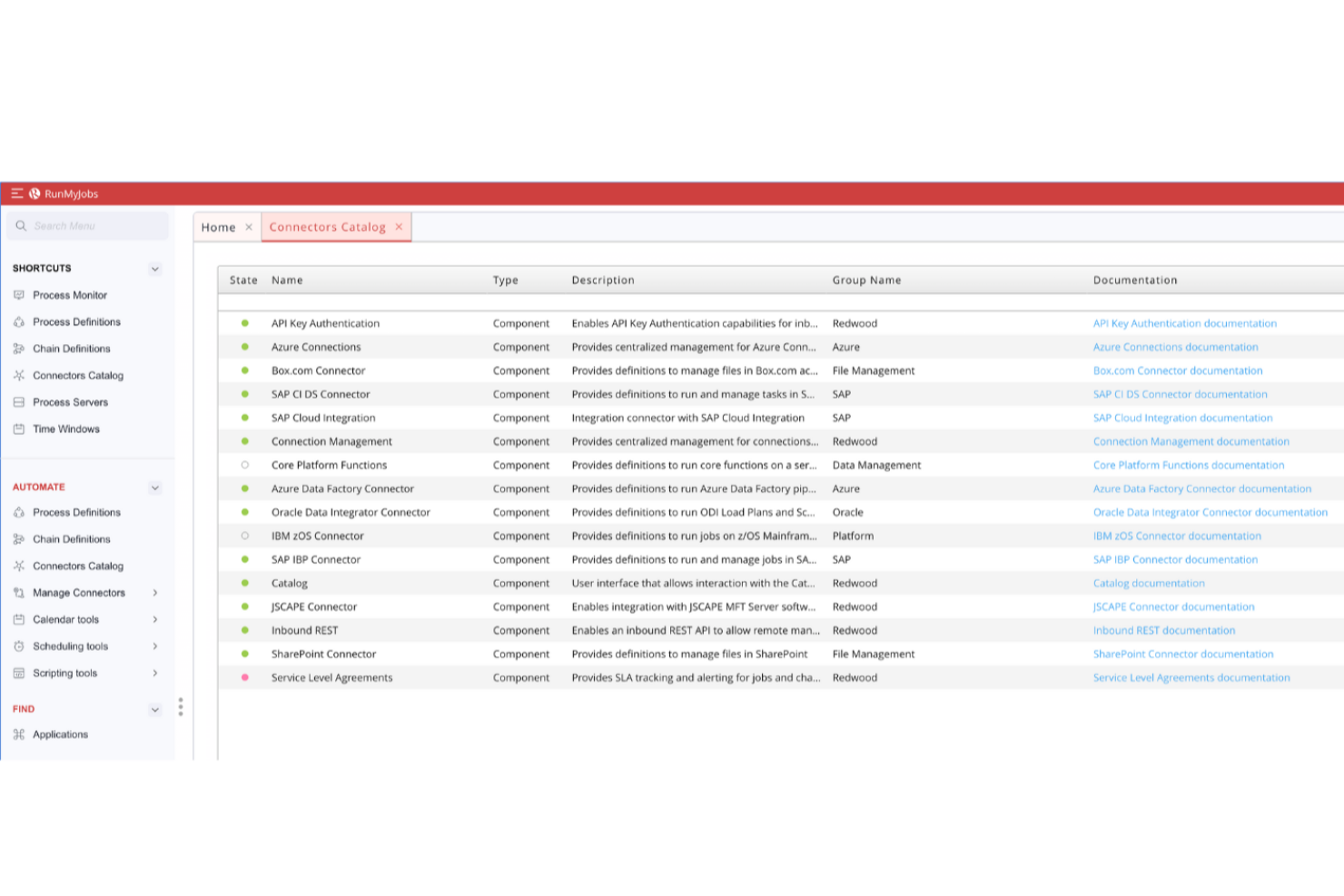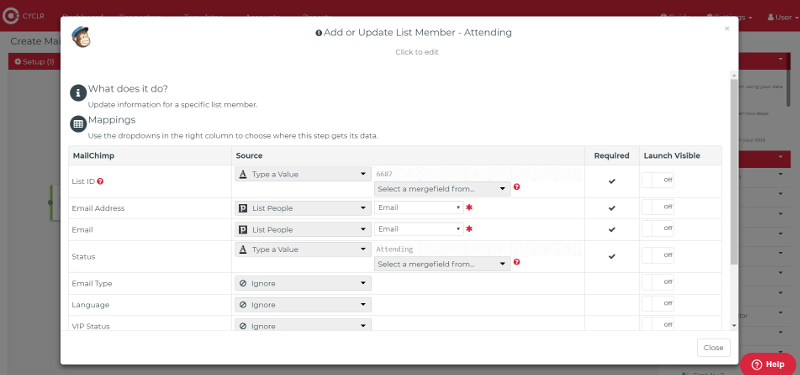Best Cloud Orchestration Platforms Shortlist
Here’s my shortlist of the best cloud orchestration platforms:
Our one-on-one guidance will help you find the perfect fit.
Managing complex IT environments can feel like a constant battle — juggling multiple systems, automating workflows, and keeping infrastructure stable without downtime. Finding the right cloud orchestration platform isn’t easy, especially when you’re comparing features, pricing, and integration options across so many solutions.
As someone who's tested and reviewed dozens of platforms, I know what works and what doesn’t. Cloud orchestration tools help you automate repetitive tasks, manage resources more efficiently, and respond to system issues faster. I’ve done the heavy lifting so you don’t have to — this guide will help you find the best solution for your team’s specific needs.
Why Trust Our Software Reviews
We’ve been testing and reviewing software since 2023. As tech experts ourselves, we know how critical and difficult it is to make the right decision when selecting software. We invest in deep research to help our audience make better software purchasing decisions.
We’ve tested more than 2,000 tools for different SaaS development use cases and written over 1,000 comprehensive software reviews. Learn how we stay transparent & check out our software review methodology.
Best Cloud Orchestration Platforms Summary
This comparison chart summarizes pricing details for my top cloud orchestration platforms selections to help you find the best one for your budget and business needs.
| Tool | Best For | Trial Info | Price | ||
|---|---|---|---|---|---|
| 1 | Best for real-time monitoring | Free demo available | Pricing upon request | Website | |
| 2 | Best for enterprise automation | Free demo available | Pricing upon request | Website | |
| 3 | Best for financial services | Free demo available | Pricing upon request | Website | |
| 4 | Best for integration simplicity | Free trial available | From $1,595/year | Website | |
| 5 | Best for developer insights | Free plan + demo available | Pricing upon request | Website | |
| 6 | Best for hybrid cloud management | Free plan available | Free | Website | |
| 7 | Best for configuration management | Free trial available | Pricing upon request | Website | |
| 8 | Best for AWS services automation | Free plan available | Pricing upon request | Website | |
| 9 | Unifying islands of disparate automation into a straight-forward cloud strategy | Free plan available | From $708.33/month (billed annually) | Website | |
| 10 | Best for Azure services integration | 30 Days Free Trial | $200 Azure credit | Website |
-

Docker
Visit WebsiteThis is an aggregated rating for this tool including ratings from Crozdesk users and ratings from other sites.4.6 -

Pulumi
Visit WebsiteThis is an aggregated rating for this tool including ratings from Crozdesk users and ratings from other sites.4.8 -

GitHub Actions
Visit Website
Best Cloud Orchestration Platform Reviews
Below are my detailed summaries of the best cloud orchestration platforms that made it onto my shortlist. My reviews offer a detailed look at the key features, pros & cons, integrations, and ideal use cases of each tool to help you find the best one for you.
Stonebranch Universal Automation Center is a cloud automation platform designed for IT professionals and developers. It streamlines IT processes across private, public, and hybrid environments, focusing on real-time, event-based automation and workload orchestration.
Why I picked Stonebranch Universal Automation Center: It excels in real-time monitoring due to its centralized control and event-based automation capabilities. Your team can automate workloads and data transfers across multiple cloud platforms without custom scripts. Its role-based self-service access supports collaboration among IT operations, developers, and data teams. Additionally, it offers integration with cloud technologies, ensuring efficient job scheduling and infrastructure automation.
Standout features & integrations:
Features include a user-friendly integration hub for easy connections with any platform or application. The tool also automates cloud infrastructure, integrating with tools like Ansible and Terraform. Secure hybrid cloud data transfer is supported, along with advanced scheduling capabilities.
Integrations include AWS, Google Cloud Platform, Microsoft Azure, Ansible, Terraform, ServiceNow, SAP, Oracle, IBM, and Informatica.
Pros and cons
Pros:
- Role-based self-service access
- Event-based automation capabilities
- Centralized control for automation
Cons:
- Limited customization options
- Requires technical expertise
ActiveBatch is a cloud-based workload automation tool aimed at IT and business professionals. It features advanced job scheduling and a variety of connectors for automation across systems.
Why I picked ActiveBatch: It supports enterprises by offering effortless implementation with a no-code/low-code interface. Its extensive library of connectors and a Super REST API adapter enhance automation capabilities. ActiveBatch provides complete visibility for process management, which is crucial for enterprise-level automation. The platform also ensures robust security and compliance, catering to the needs of large organizations.
Standout features & integrations:
Features include a rich content library of pre-built job steps, advanced job scheduling capabilities, and strong security measures for compliance. Your team will benefit from its no-code/low-code interface, making it accessible for users without extensive coding experience. Additionally, ActiveBatch supports a proven three-step migration process to ensure smooth transitions.
Integrations include Microsoft SQL Server, Oracle, SAP, VMware, Amazon Web Services, Microsoft Azure, IBM i, Informatica, ServiceNow, and Salesforce.
Pros and cons
Pros:
- Strong security features
- Extensive connector library
- No-code/low-code interface
Cons:
- Limited customization options
- May require initial setup time
RunMyJobs by Redwood is a cloud-based workload automation platform designed for enterprises, particularly in the financial services sector. It automates mission-critical processes and provides deep integration with SAP systems, ensuring reliable operation and compliance.
Why I picked RunMyJobs by Redwood: The tool is ideal for financial services due to its comprehensive SAP integration, which allows your team to orchestrate and monitor jobs across the entire ecosystem. It offers real-time visibility and predictive SLA management, crucial for maintaining service levels. The platform's automatic self-recovery ensures process continuity, reducing downtime. RunMyJobs is also a premium-certified SAP Endorsed App and is included in the RISE with SAP reference architecture, making it ideal for those looking for less risk and long-term reliability.
Standout features & integrations:
Features include a user-friendly visual editor that simplifies creating and managing automation workflows. Your team will appreciate the unlimited system connectivity, allowing seamless integration with multiple applications. The platform also supports over 25 scripting languages, offering flexibility in automation tasks.
Integrations include SAP, Oracle, Microsoft Azure, Amazon Web Services, Google Cloud Platform, Salesforce, ServiceNow, IBM, Informatica, and VMware.
Pros and cons
Pros:
- Supports 25+ scripting languages
- Deep SAP integration
- Unlimited system connectivity
Cons:
- Limited customization options
- Initial setup can be time-consuming
Cyclr is an integration platform as a service (iPaaS) designed for SaaS companies to create and deploy integrations effortlessly. It targets SaaS providers looking to enhance their product offerings with pre-built integrations and connectors.
Why I picked Cyclr: It simplifies integration processes with a drag-and-drop builder that allows you to create connections without coding. Cyclr provides a wide range of pre-built connectors, saving time and resources for your team. It supports multi-step workflows, enabling complex automation tasks with ease. Additionally, Cyclr offers white-label solutions, allowing you to maintain your brand identity while leveraging its integration capabilities.
Standout features & integrations:
Features include an intuitive drag-and-drop builder that makes creating integrations straightforward. Cyclr also offers a comprehensive library of pre-built connectors, reducing the need for custom development. Your team can benefit from white-label solutions, allowing you to offer integrations under your brand.
Integrations include Salesforce, HubSpot, Mailchimp, Shopify, QuickBooks, Zendesk, Google Sheets, Slack, Xero, and Microsoft Dynamics 365.
Pros and cons
Pros:
- Supports multi-step workflows
- Wide range of pre-built connectors
- Drag-and-drop integration builder
Cons:
- Performance can vary with complex tasks
- Requires ongoing management
New Relic is an observability platform designed for developers and IT operations teams to monitor and manage application performance. It provides real-time insights into application health and user experience, helping teams detect and resolve issues quickly.
Why I picked New Relic: It excels in providing developer insights with its comprehensive monitoring capabilities. Your team can leverage its real-time analytics to identify performance bottlenecks and improve application efficiency. The platform's customizable dashboards offer tailored views for different team members. Additionally, New Relic's alerting system helps you stay on top of potential issues before they impact users.
Standout features & integrations:
Features include real-time monitoring that gives you instant insights into application performance. It offers customizable dashboards that let you tailor the data display to your needs. The platform also provides an alerting system that helps you catch issues early and respond promptly.
Integrations include AWS, Azure, Google Cloud Platform, Kubernetes, Docker, Slack, PagerDuty, Jira, GitHub, and Jenkins.
Pros and cons
Pros:
- Customizable dashboards
- Real-time performance analytics
- Comprehensive monitoring capabilities
Cons:
- Performance issues with large data sets
- Requires some technical expertise
Cloudify is a cloud orchestration platform designed for DevOps teams and IT professionals. It manages and automates the deployment of applications and services across hybrid cloud environments, focusing on reducing complexity and increasing efficiency.
Why I picked Cloudify: It excels in hybrid cloud management by allowing you to automate processes across multiple cloud environments. The tool's multi-cloud orchestration capabilities let your team deploy and manage applications seamlessly. With its open-source nature, Cloudify provides flexibility and customization options. Additionally, the platform supports infrastructure as code, enabling efficient resource management and scalability.
Standout features & integrations:
Features include an intuitive orchestration engine that simplifies the deployment of complex applications. Cloudify supports infrastructure as code, allowing you to manage resources efficiently. It also provides a self-service portal that empowers your team to manage deployments without needing extensive technical knowledge.
Integrations include AWS, Microsoft Azure, Google Cloud Platform, OpenStack, VMware, Kubernetes, Docker, Ansible, Terraform, and Jenkins.
Pros and cons
Pros:
- Open-source flexibility
- Infrastructure as code capabilities
- Supports hybrid cloud environments
Cons:
- Customization requires coding skills
- Performance varies with large deployments
Red Hat Ansible is an open-source automation tool that helps you manage configurations, deploy applications, and orchestrate tasks across your infrastructure. It's designed for IT operations teams and system administrators to automate repetitive tasks and ensure consistency across environments. Ansible uses a simple, human-readable language to define automation workflows, making it accessible to teams with varying levels of expertise.
Why I picked Red Hat Ansible: If you're aiming for effective configuration management, Ansible is a strong contender. Its agentless architecture means you don't have to install additional software on your managed nodes; it uses standard protocols like SSH and WinRM for communication. Ansible's use of YAML for playbooks allows you to describe your system configurations in a straightforward, readable format.
Standout features & integrations:
Features include role-based access control (RBAC), allowing you to define permissions for different users and teams. The workflow visualizer lets you design and manage automation workflows visually, making complex processes easier to understand. Ansible also integrates with continuous integration and continuous delivery (CI/CD) systems, helping your team automate application deployment pipelines.redhat.com
Integrations include compatibility with various operating systems such as Linux, macOS, and Windows. Ansible also integrates with version control systems like Git, cloud providers like AWS and Azure, and configuration management tools like Puppet Enterprise.
Pros and cons
Pros:
- Cross-platform support
- Supports multiple scripting languages
- Direct application of Puppet code
Cons:
- Limited built-in scheduling capabilities
- May require SSH or WinRM setup
AWS CloudFormation is a cloud orchestration service aimed at developers and IT administrators for managing AWS resources. It automates the setup and configuration of AWS services, allowing users to focus on application development rather than infrastructure management.
Why I picked AWS CloudFormation: It simplifies AWS services automation by using templates to define infrastructure as code. Your team can manage resources consistently and predictably, reducing the likelihood of configuration errors. The tool's rollback capability helps you recover easily from deployment failures. Additionally, with its extensive AWS service support, CloudFormation fits seamlessly into existing AWS environments.
Standout features & integrations:
Features include infrastructure as code, which allows you to define AWS resources through templates. AWS CloudFormation supports stack management, making it easy to update and manage resources as a group. The tool also offers a change set feature, letting you preview changes before applying them.
Integrations include Amazon EC2, Amazon S3, Amazon RDS, Amazon VPC, AWS Lambda, Amazon CloudWatch, Amazon SNS, AWS IAM, Amazon ECS, and AWS Elastic Beanstalk.
Pros and cons
Pros:
- Consistent resource management
- Extensive AWS service support
- Infrastructure as code capabilities
Cons:
- Can be resource-intensive
- Requires AWS expertise
Unifying islands of disparate automation into a straight-forward cloud strategy
While the cloud provides variety, the proliferation of tools has become a burdensome cognitive overload for IT operators. Cloudbolt seeks to cure this confusing patchwork by providing the means to interconnect it all.
Cloudbolt provides a secure and fast way to centralize IT orchestration for hybrid cloud resources in a cost-effective manner. The platform is designed to bring cohesion to an increasing multi-tool world, with its ability to bridge these tools across the organization to accelerate cloud transformation.
Cloudbolt enables enterprises to support a variety of technologies, including on-premise virtualization. Others range from private clouds to public and hybrid configurations.
Cloudbolt is ideal for enterprises that need the flexibility to optimize resources continuously in multi-cloud, multi-tool environments.
Cloudbolt provides pricing upon request.
Azure Automation is designed to provide cloud-based automation that seamlessly integrates across both Azure and non-Azure environments. In addition to automating management tasks within Azure, it’s elastic enough to allow you to orchestrate events spanning external systems — while still operating within Azure’s confines.
Azure Automation grants users complete control of their workloads and resources, ranging from deployment, configuration, update management, and decommissioning operations. The platform is equipped with an impressive breadth of services such as configuration management, process automation, change tracking, and shared capabilities.
It is ideal for Azure users because it natively integrates into Azure architecture. However, its strength is also its downside; it tends to be overly reliant on Azure services.
Azure provides a free trial for 30 days, in addition to a $200 Azure credit. Pricing is provided upon request, along with a pricing calculator to estimate hourly or monthly costs.
Other Cloud Orchestration Platforms
Here are some additional cloud orchestration platforms options that didn’t make it onto my shortlist, but are still worth checking out:
- BMC Multi-Cloud Management
For multi-cloud governance
- IBM Cloud Orchestrator
For IBM cloud environments
- CloudHealth
For cloud cost management
- Puppet Bolt
For agentless automation
- Kubernetes
For container orchestration
- Chef
For infrastructure automation
- vRealize Suite
For IT operations management
- OpenStack
For private cloud deployment
- Terraform
Allows DevOps to describe their infrastructure as a code, then build, manage, and reuse resources across providers.
- Morpheus
For multi-cloud orchestration
Cloud Orchestration Platform Selection Criteria
When selecting the best cloud management platforms to include in this list, I considered common buyer needs and pain points like integration complexity and resource management. I also used the following framework to keep my evaluation structured and fair:
Core Functionality (25% of total score)
To be considered for inclusion in this list, each solution had to fulfill these common use cases:
- Automating application deployment
- Managing cloud development resources
- Monitoring system performance
- Integrating with existing IT infrastructure
- Scaling applications automatically
Additional Standout Features (25% of total score)
To help further narrow down the competition, I also looked for unique features, such as:
- Multi-cloud support
- Advanced security options
- Customizable workflows
- Real-time analytics
- AI-driven insights
Usability (10% of total score)
To get a sense of the usability of each system, I considered the following:
- Intuitive interface design
- Ease of navigation
- Clear documentation
- Customization options
- Accessibility features
Onboarding (10% of total score)
To evaluate the onboarding experience for each platform, I considered the following:
- Availability of training videos
- Interactive product tours
- Access to templates
- Live webinars
- Chatbot assistance
Customer Support (10% of total score)
To assess each software provider’s customer support services, I considered the following:
- 24/7 support availability
- Response time effectiveness
- Multi-channel support options
- Access to a knowledge base
- Personalized support services
Value For Money (10% of total score)
To evaluate the value for money of each platform, I considered the following:
- Competitive pricing structure
- Flexible subscription plans
- Discounts for annual billing
- Feature set relative to cost
- Return on investment potential
Customer Reviews (10% of total score)
To get a sense of overall customer satisfaction, I considered the following when reading customer reviews:
- User satisfaction ratings
- Commonly reported issues
- Frequency of software updates
- Feedback on support services
- Overall product reliability
How to Choose a Cloud Orchestration Platform
It’s easy to get bogged down in long feature lists and complex pricing structures. To help you stay focused as you work through your unique software selection process, here’s a checklist of factors to keep in mind:
| Factor | What to Consider |
| Scalability | Ensure the platform can grow with your needs. Look for solutions that support increasing workloads without sacrificing performance. |
| Integrations | Check if the platform integrates with your existing container orchestration software and environments. Compatibility with your current IT ecosystem is crucial for smooth operations. |
| Customizability | Look for platforms that allow you to tailor workflows and processes. Customizability ensures the solution fits your unique business needs. |
| Ease of Use | Consider how intuitive the interface is for your team. A user-friendly design can reduce the learning curve and increase productivity. |
| Budget | Evaluate the cost against your financial constraints. Make sure the features you need are included in the pricing tier you can afford. |
| Security Safeguards | Ensure robust security measures are in place. Look for encryption, compliance with data regulations, and regular security updates to protect your data. |
| Support | Assess the quality and availability of customer support. Reliable support is essential for resolving issues quickly and maintaining operations. |
| Performance | Consider the platform's ability to handle your workloads efficiently. Check for performance benchmarks and user reviews to gauge reliability. |
Trends in Cloud Orchestration Platform
In my research, I sourced countless product updates, press releases, and release logs from different cloud orchestration platforms vendors. Here are some of the emerging trends I’m keeping an eye on:
- AI-Driven Insights: Platforms are using AI to provide predictive analytics and insights. This helps teams anticipate issues before they arise and optimize resource allocation. Vendors like New Relic are incorporating AI to enhance monitoring capabilities.
- Edge Computing Support: More platforms are starting to support edge computing to process data closer to its source. This reduces latency and enhances performance for applications needing real-time data processing. Cloudify is exploring edge support in its offerings.
- Serverless Architecture: There's a growing shift towards serverless setups, allowing developers to focus on code without managing infrastructure. This trend simplifies deployment and scaling. AWS CloudFormation is expanding its serverless capabilities.
- Enhanced Security Features: Vendors are prioritizing security with advanced encryption and compliance tools. As data privacy becomes a top concern, these features are increasingly important. IBM Cloud Orchestrator focuses heavily on security compliance.
- Self-Healing Systems: Platforms are evolving to include self-healing capabilities, automatically correcting issues without user intervention. This reduces downtime and maintenance efforts. Kubernetes is leading the way with its self-healing container orchestration.
What Are Cloud Orchestration Platforms?
Cloud orchestration platforms are tools that automate the management, coordination, and organization of complex cloud services and processes. IT professionals and DevOps orchestration teams typically use these tools to simplify deployment, scaling, and management of applications. Automation, scalability, and real-time monitoring features help with efficient cloud resource management and reducing manual workload. Overall, these tools enhance operational efficiency and enable businesses to focus on innovation rather than infrastructure management.
Features of Cloud Orchestration Platforms
When selecting cloud orchestration platforms, keep an eye out for the following key features:
- Scalability: Adjusts resources dynamically to meet changing demands, ensuring optimal performance.
- Real-time monitoring: Provides live insights into system performance, helping identify and resolve issues quickly.
- Integration capabilities: Connects with existing IT systems, ensuring smooth operations across platforms.
- Infrastructure as code: Allows you to define and manage infrastructure using code, promoting consistency and repeatability.
- Workload Automation Software: Automates repetitive tasks and processes, reducing manual work and increasing efficiency.
- Self-healing: Automatically detects and corrects issues, minimizing downtime and maintenance efforts.
- Security compliance: Ensures operations meet necessary security standards, protecting data and maintaining trust.
- Cost management: Tracks and controls cloud spending, helping optimize resource allocation and reduce costs.
- Customizability: Offers the ability to tailor workflows and settings to fit specific business needs.
- User-friendly interface: Provides an intuitive design that simplifies navigation and reduces the learning curve for users.
Benefits of Cloud Orchestration Platforms
Implementing cloud orchestration platforms provides several benefits for your team and your business, especially when integrated with release orchestration tools. Here are a few you can look forward to:
- Increased efficiency: Automation of tasks and processes reduces manual workload and speeds up operations.
- Cost savings: Cost management features help track and control spending, optimizing resource use and reducing expenses.
- Enhanced performance: Scalability ensures that resources are dynamically adjusted to meet demand, maintaining optimal performance.
- Improved reliability: Self-healing capabilities automatically address issues, minimizing downtime and maintaining service continuity.
- Better security: Security compliance features ensure operations meet necessary standards, safeguarding data and maintaining trust.
- Simplified management: Integration capabilities allow for smooth operations across platforms, reducing complexity in managing IT systems.
- Flexibility: Customizability allows teams to tailor workflows and settings to fit specific business needs, enhancing adaptability.
Costs and Pricing of Cloud Orchestration Platforms
Selecting cloud orchestration platforms requires an understanding of the various pricing models and plans available. Costs vary based on features, team size, add-ons, and more. The table below summarizes common plans, their average prices, and typical features included in Cloud orchestration platforms solutions:
Plan Comparison Table for Cloud Orchestration Platforms
| Plan Type | Average Price | Common Features |
| Free Plan | $0 | Basic automation, limited integrations, and community support. |
| Personal Plan | $5-$25/user/month | Standard automation, basic analytics, and email support. |
| Business Plan | $30-$60/user/month | Advanced automation, enhanced security, API access, and priority support. |
| Enterprise Plan | $70-$150/user/month | Customizable workflows, real-time monitoring, dedicated account manager, and 24/7 support. |
Cloud Orchestration Platforms (FAQs)
Here are some answers to common questions about cloud orchestration platforms:
What are the two types of models for cloud orchestration?
Cloud orchestration can be categorized into two primary models: single-cloud orchestration and multi-cloud orchestration. Single-cloud orchestration involves managing applications and services within a single cloud service provider. Multi-cloud orchestration, on the other hand, involves coordinating resources across multiple cloud providers, offering flexibility and redundancy.
What is the difference between cloud orchestration and automation?
Cloud automation refers to executing tasks without human intervention, while cloud orchestration involves arranging and coordinating these automated tasks into a unified workflow. Orchestration ensures that automated processes work together efficiently, enhancing the overall IT workflow and resource management.
How does cloud orchestration improve resource management?
Cloud orchestration improves resource management by automating the allocation and scaling of resources based on demand. It ensures optimal use of resources, reduces waste, and enhances performance by dynamically adjusting resources in real-time. This automation helps your team focus on strategic tasks rather than manual resource allocation.
Why is security important in cloud orchestration?
Security in cloud orchestration is crucial as it involves managing sensitive data and operations across cloud environments. Proper security measures, such as encryption and compliance with regulations, protect your data from breaches and ensure that your cloud operations remain secure and trusted.
What role does scalability play in cloud orchestration?
Scalability is a key feature of cloud orchestration, allowing your systems to handle increased loads without compromising performance. It enables you to automatically adjust resources as demand changes, ensuring that your applications remain responsive and efficient, even during peak usage.
How do cloud orchestration platforms support multi-cloud environments?
Cloud orchestration platforms support multi-cloud platforms by providing tools to manage and coordinate resources across different cloud providers. This capability gives your team the flexibility to choose the best services from various providers and ensures redundancy, reducing the risk of downtime and vendor lock-in.
What's Next?
Boost your SaaS growth and leadership skills. Subscribe to our newsletter for the latest insights from CTOs and aspiring tech leaders.
We'll help you scale smarter and lead stronger with guides, resources, and strategies from top experts!





